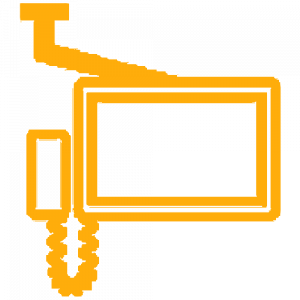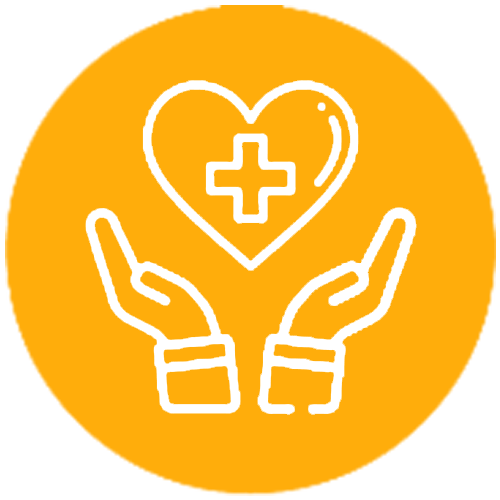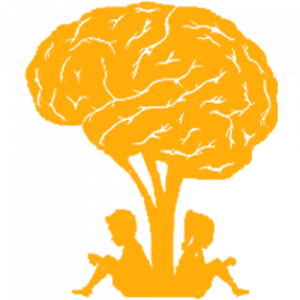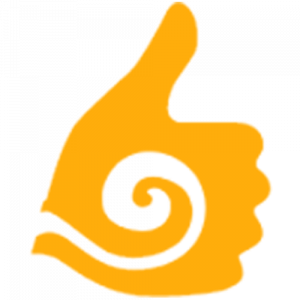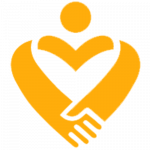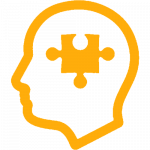Deaddiction

Athma De-Addiction Centre was established in 2008 with the mission of giving hope to the suffering families due to alcoholism & substance dependence. It is a fully-equipped de-addiction centre with a residential care capacity of up to 40 patients. Our teams of psychiatrist, experienced & compassionate counselors provide a holistic treatment with pharmacotherapy, counselling, group work and self help group therapies.
Athma De-addiction Centre is the only centre in the city run by Psychiatrist and has proper facilities to deal with withdrawal symptoms, delirium tremens, and seizures. The clients are diagnosed and treated appropriately, we assure their safety in terms of physical and emotional violence, educate them about the treatment process, and Antabuse drugs are professionally followed up, etc.
This approach along with a high achievement rate of our clients created a positive attitude towards de-addiction centres in society.
The unique feature of our centre is the integration of yoga, art therapy, occupational therapy, group therapy, recreational activities and the concept of alcoholic anonymous into the therapy protocol. The clients are made to feel home away from home. Many clients at discharge had cried about leaving such a good place which had given them new insight into their lives.
- 10000 + Happy Families
- High Protection and Safety
- Smoking Free de-addiction centre in the city
- Firsthand Monitoring by Psychiatrists and professionals
- In house social workers
- 24/7 Emergency care & Helpline
- ICU with ventilator and facilities to manage emergencies
- State of Art facilities, Interventions and remedial education
- Professionally qualified team to supervise emergencies associated with alcohol and drug withdrawal
- We treat co-morbid illness (Psychiatric and medical complications)
- Monthly follow-up
- Awards to beneficiaries who remain sober
- Relapse Prevention Programme
- Cue Exposure Therapy
- Self-realization therapy
- Group therapy
- Yoga and Meditation designed uniquely for relapse prevention
Assessment
When you are admitted in Athma De-addiction centre, the expert team will assess you with a set of tools which will explore in depth insight about your present and past stressors contributing for your alcoholism or drug abuse.
Assessment:
Alcohol Use Disorders Identification Test (AUDIT) Cut-down, Annoyed, Guilt, Eye-opener (CAGE) History Collection Family Dynamics Psychometric Assessment | Personality Assessment Frontal Assessment Battery Marital Adjustment Questionnaire Psychological Rating Scales to rule out Psychiatric Morbidities |
Psychological Treatment

Individual counselling
Individual counselling involves a one-to-one session between the counsellor and the client. It is the most prevalent sort of therapy for mental and behavioural conditions. Individual therapy will help the counsellor to establish rapport and gain the client’s trust, which lead the individual’s recovery process.
The counsellor will assess all the problem areas due to alcoholism, particularly related to family, marital quality, physical and emotional, impact in children, professional life, social relationships, financial issues and overall quality of life.
The counsellor also will be exploring the client’s personality, including past experiences and present behaviours, and creating new processes to address conflicts, defence mechanisms and maladaptive behaviours.
Our beneficiaries will have one to one sessions with the assigned counsellor daily till the discharge.
Group Therapy

Group therapy allows people suffering from alcohol dependence to come together and gain strength through shared experiences and support. Group therapy helps members to realize that they are not alone, help to reduce stress, guilt, pain, develop insight, aware adverse effects of alcoholism and boost confidence and self-esteem.
Family Counselling
Based on family dynamics, the counsellor will involve family members in the treatment of alcoholism and its very essential to alter the interaction pattern and family systems once the client highly motivated to stay away from substance. Often wives leave / separate alcohol dependents for abusing them physically and emotionally. Sometimes broken family structure leads to relapse and in most cases, family plays a significant role for an alcoholic to become dependent. Children have significant impairment in academics and social relationships.
Hence family counselling or family therapy is crucial in alcohol-dependent treatment to educate about alcohol addiction, family role in recovery, steps to be taken during lapse and relapse.
Family counselling will also help the client to reunite with his/her family members (especially with spouse and children).
During follow-up wives and children participate in Al-Anon and Al-Ateen group meetings.
Jacobson Muscle Relaxatation Technique (JPMR)
Jacobson’s relaxation technique is a progressive relaxation therapy that concentrates on contracting and loosening specific muscle groups in order. By focusing on particular areas and tensing and then relaxing them, you can become more aware of your body and physical sensations.
Cognitive Behavioral Therapy

Cognitive Behavioral Therapy (CBT) in alcoholism is a successful approach for a long time to defeat alcohol dependence. Generally, CBT aims to alter maladaptive behaviours like substance abuse that come from the individual’s learned beliefs and coping mechanisms. The therapist will then work with their client to improve behavioural responses to negative thoughts or emotions, which helps to reduce the risk of relapse.
The goal of CBT is to teach the person to recognize situations in which they are most likely to drink or use drugs and avoid certain circumstances, possibly to stay abstinent from alcohol and drugs.
Motivational Enhancement Therapy
Motivational Enhancement Therapy (MET) is a person-centred approach therapy that focuses on improving a client’s motivation to give up alcohol addiction. Those who drink alcohol may often be ambivalent or have little motivation to correct such behaviours, despite recognizing the adverse consequence of said behaviours on health, family life, or social functioning.
Relaxation
Guided imagery
Yoga and Meditation
Art Therapy
Dance Movement Therapy
Laughing Therapy
Bio Feedback
Brain Polarizer
Recreation



Treating Psychiatric Co-morbidities
Alcohol dependents are vulnerable to develop Depression, Suicide, Anxiety disorders like Panic disorder, social anxiety disorder, GAD, Sexual dysfunction (Erectile dysfunction), Sleep disorder, Dementia and Psychotic disorders with delusions.
Athma de-addiction centre is the only centre to treat various co morbidities
Alcoholics Anonymous
 We have a robust and functional association with the Alcoholics Anonymous (AA) group (AA is an international organization with chapters all over the world that works with the local de-addiction centres. Trichy Inter Group is one of the recognized head office centres of AA).
We have a robust and functional association with the Alcoholics Anonymous (AA) group (AA is an international organization with chapters all over the world that works with the local de-addiction centres. Trichy Inter Group is one of the recognized head office centres of AA).
Alcoholics Anonymous has supported people in overcoming alcoholism. AA enables people to engage and unite with others facing drinking problems. While gatherings, members share their experiences with alcohol and provide tips and support to others in recovery.
Al-Anon
Al-Anon is a support group designed to assist families to cope with the emotional suffering provoked by their loved one’s alcoholism.
During an Al-Anon meeting, people share their struggles interacting with family members who have drinking problems. Members can learn tactics to encourage loved ones to overcome alcoholism and ways to deal with their emotional agitation.
Al- Ateen
Al-Ateen is a support group for teens who have family members with alcoholism. This support group allows teens to talk about addiction within their family, vent their frustrations and share stories of hope.
Through Al-Ateen meetings, adolescents learn to cope with their emotions, improve their self-esteem and live happier lives.
Managing the Co-Morbid conditions
About 40% of alcohol dependents have co morbid mental illness such as anxiety, depression. Sometimes very severe may be the prevalence for alcohol seeking behavior. 1/3 of alcohol dependents try for suicide. Other substance dependence like smoking, cannabis, hans, Cool Lip are the commonest other substance patients use. We motivate them to stop their dependence. Our centre is SMOKE FREE DEADDCITION CENTRE. We provide anticraving medicines and nicotex gums, varenicline (champix) to stop smoking.
We have to treat their conditions aggressively. Apart from anxiolytics & antidepressants in turn counselling benefits them. We have to prevent suicide at any cost.
Morbid jealousy
This is a common psychiatric problem associated with alcohol addiction. Since the patient due to his alcoholic addiction doesn’t fulfill the duties of a husband and father, starts suspecting wife of extra marital contact, affairs etc., they become aggressive, violent & domestically abuse the spouse. This is one of the reasons why wives leave the patient more than his alcohol use.
Anti psychotic medicines are needed to reduce this problem.
Diabetes, hypertension & cardiac conditions which are frequently found in the patients should be properly monitored and treated.
- Treating Psychiatric Co-morbidities
Alcohol dependents are vulnerable to develop Depression, Suicide, Anxiety disorders like Panic disorder, social anxiety disorder, GAD, Sexual dysfunction (Erectile dysfunction), Sleep disorder, Dementia and Psychotic disorders with delusions.
Athma de-addiction centre is the only centre to treat various co morbidities
Alcoholics Anonymous
We have a robust and functional association with the Alcoholics Anonymous (AA) group (AA is an international organization with chapters all over the world that works with the local de-addiction centres. Trichy Inter Group is one of the recognized head office centres of AA).
Alcoholics Anonymous has supported people in overcoming alcoholism. AA enables people to engage and unite with others facing drinking problems. While gatherings, members share their experiences with alcohol and provide tips and support to others in recovery.
Al-Anon
Al-Anon is a support group designed to assist families to cope with the emotional suffering provoked by their loved one’s alcoholism.
During an Al-Anon meeting, people share their struggles interacting with family members who have drinking problems. Members can learn tactics to encourage loved ones to overcome alcoholism and ways to deal with their emotional agitation.
Al- Ateen
Al-Ateen is a support group for teens who have family members with alcoholism. This support group allows teens to talk about addiction within their family, vent their frustrations and share stories of hope.
Through Al-Ateen meetings, adolescents learn to cope with their emotions, improve their self-esteem and live happier lives.
 Every year Athma De-addiction Centre is honoring beneficiaries with புத்துயிர் பெற்ற சாதனையாளர் – “Puthuyir Petra Sathanaiyalar” award who are sober for more than 2 years to motivate them to lead a happy life. This event created a positive response from our beneficiaries and their family members.
Every year Athma De-addiction Centre is honoring beneficiaries with புத்துயிர் பெற்ற சாதனையாளர் – “Puthuyir Petra Sathanaiyalar” award who are sober for more than 2 years to motivate them to lead a happy life. This event created a positive response from our beneficiaries and their family members.
 Every month 4th Sunday, we are organizing a family meet with our beneficiaries to ensure their drug compliance and to help them in relapse prevention through sharing sessions. This is an effective method to track clients’ condition and reassure them. This day they will have sharing sessions, recreational activities, doctor consultation and complete with a delicious lunch.
Every month 4th Sunday, we are organizing a family meet with our beneficiaries to ensure their drug compliance and to help them in relapse prevention through sharing sessions. This is an effective method to track clients’ condition and reassure them. This day they will have sharing sessions, recreational activities, doctor consultation and complete with a delicious lunch.
Athma de-addiction centre not only concentrate on individual and familial issues but also concentrates on societal issues due to alcohol and drugs. Our experienced community mental health social workers are organizing awareness programmes in schools and colleges, urban, semi-urban & rural areas and industries.




Mr. L. J. Prince

Mr. Pragadeeshwaran

Ms. N. Monika
TREATMENT / MANAGEMENT
- Inappropriate behaviour, impaired judgement, hypersexual or aggressive behaviour
- Slurred speech
- Unsteady gait
- In-coordination
- Impairment in attention and memory
- Stupor or coma
- Recurrent excess of alcohol intake leading to impairment in social or occupational function
- Frequent legal problems when ever alcohol is consumed.
- Hazardous drinking like drunken driving, sexual harassment, etc.
- One of major obligations is missed – like work or school or home.
- Increased pulse rate > 100/min
- Sweating
- Increased hand tremor
- Insomnia
- Nausea and vomiting
- Anxiety (panic attacks)
- Psychomotor agitation
- Transient visual or auditory hallucinations
- Seizures
- Tolerance
- Withdrawal
- Repeated attempts to cut down
- Increasing amounts of alcohol
- Increasing time spent for search of alcohol or its intake
- Social occupational impairment
- Health setbacks following alcohol intake may continue, and if a person had been dependent on alcohol, there is a 25% chance that his son, too, will become dependent on alcohol in the future. Alcohol often acts as positive reinforcement for a person under stress who consumes alcohol as a relieving factor. But alcohol only temporarily relieves stress, social anxiety, and depression and, in the long run, becomes the cause for the same.
- Depression
- Suicide
- Anxiety disorders like panic disorder, social anxiety disorder, GAD
- Sexual dysfunction (Erectile dysfunction)
- Sleep disorder
- Psychotic disorders with delusions
- Psychosis with hallucinations
- Delirium
- Dementia
- Denial
- Rationalisation
- Projection
On the one hand, the alcoholic person has to be personally blamed for what he has become. On the other hand, in many cases, the family members, including mother, father, brother/sister, and wife, have to be partially blamed too.
When an individual gets into a permanent or dependency mode due to alcohol consumption, when his finance is deteriorating, and when the family members become aware of it, instead of ignoring the matter at home, they should advise him to stop, cut down, etc. In many cases, outside the home, family members defend the alcoholic in public and social circles that he/she uses alcohol only occasionally. They feel the stigma of the label of ‘alcoholic’ and fail to understand that alcoholism is a disease. They don’t seek help in the initial stage. Only when the situation gets out of control – frequent hospitalization due to jaundice, blood vomiting, financial loss, loans, joblessness, when the spouse moderated to divorce, etc., they realize the magnitude of the problem and seek for help.
By the time they reach out for help, the alcoholic’s mind, brain, and body are deranged, and sometimes physicians and psychiatrists cannot help the person.
In this fast pacing world, everyone is under some pressure, which often precipitates stress, anxiety, and depression. Those who fight against it would know how to handle it, but many people think that persons with any mental situation are ruined. Added to this, humanmade social media is degrading the cultural and moral values, which are adding enormous pressure on the youth who contribute 47.9% of our population (GOI, 2017). Everyone nowadays seeks instant gratification and pretend drugs, and alcohol drinking is the only way to give them a sense of ease. The rising affluence, aspirations, and exposure to different lifestyles appear to be driving this desire in the youth to have newer experiences, and that includes experimenting with alcohol and drugs, which often lead to adverse effects. On the other hand, teens from middle and low families tend to steal money for drugs and alcohol. Most of the youth trap is in burglary, pathological gambling, turning antisocial, and involvement in illegal trafficking.
According to the National Health Survey, 29.2% of the male population consumes alcohol, and surprisingly, women with substance abuse have increased over a decade, up to 3%. It is likely to be tripled soon, which is enough of a wakeup call to the society and the families.
Many multinational liquor industries have introduced a variety of beverages such as wine, beer, vodka, Breezer and alcopops for the Indian women and it is expected that the women’s market in India will grow by 25 percent over the next five years, faster than the 10 percent rise projected for the overall industry.
The idea of women drinking is slowly gaining acceptance in India due to more women entering the organized workforce, gaining financial independence, and interacting with their male counterparts in social and professional settings.
It is expected that the sale of alcohol in India would reach 16.8 billion liters of consumption by the year 2022.
Different modes of addictions such as inhalant addiction like fevi-bond, petrol, mixed Tydol (Tapentadol) tablet, and vein injection put parents under enormous pressure.
Cannabis is on the rise but couldn’t be measured. Other opioids, benzodiazepines dependents are also increasing now. These addictions cause changes in the personality and behavior pattern of the individuals, and they are vulnerable for anxiety, suicide, depression, and often these psychological disturbances in abusers end up in schizophrenia, and other non specified mental illnesses. These psychiatric and medical complications due to addiction add much burden to the caregivers.

After admitting my husband to this hospital I have seen great changes in my husband behaviour. He stopped drinking alcohol. I’m so happy … And the great solution for an alcohol addict person – Deepika Thilager
Staffs are very kind and caring towards patients but the medical fees are too high..and the bed charge for general ward is 2000rs for single day.. excluding medical charges..if you can spend 50-60k for a patient for one month you can get clear the de-addiction procedure and can lead a new life. -Maahi






